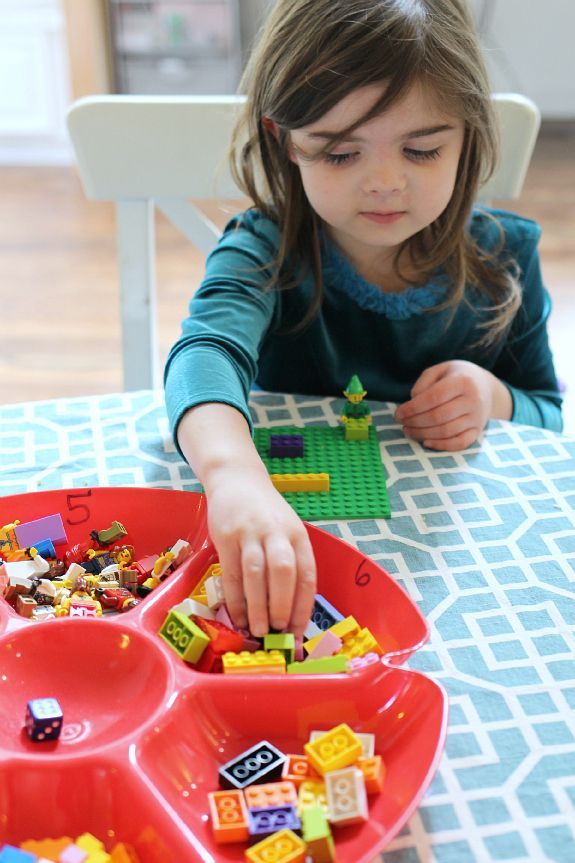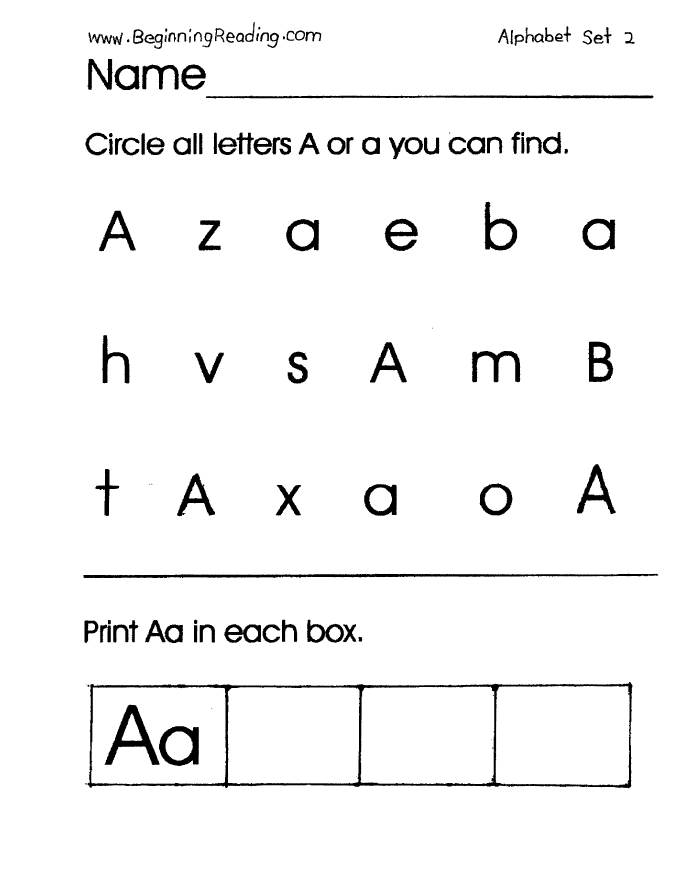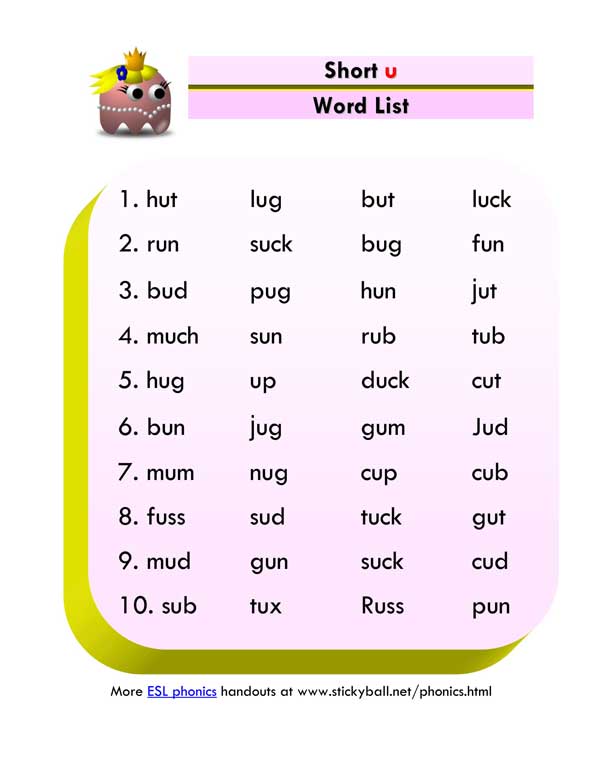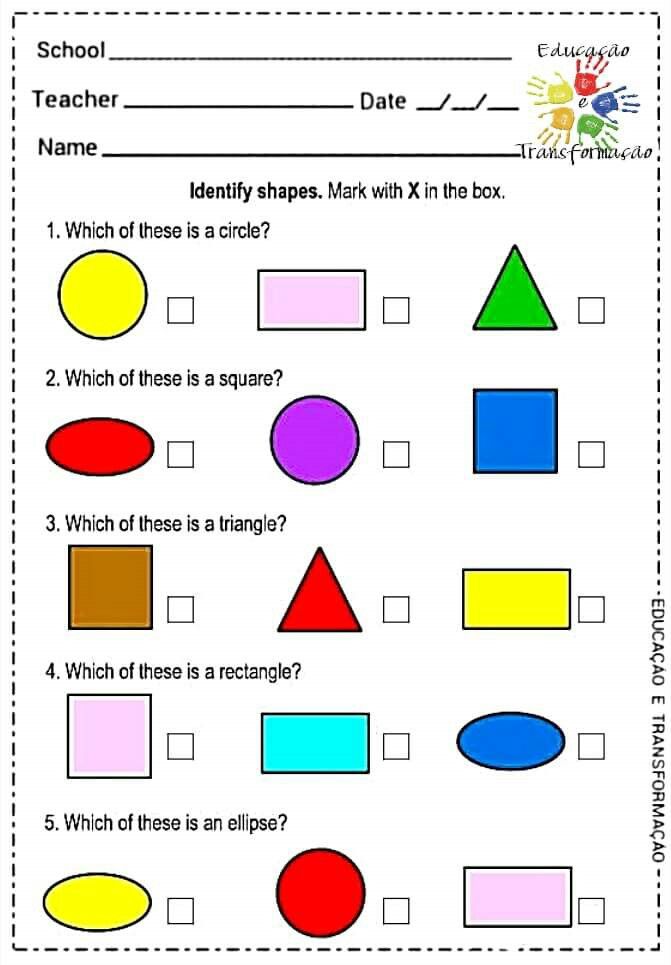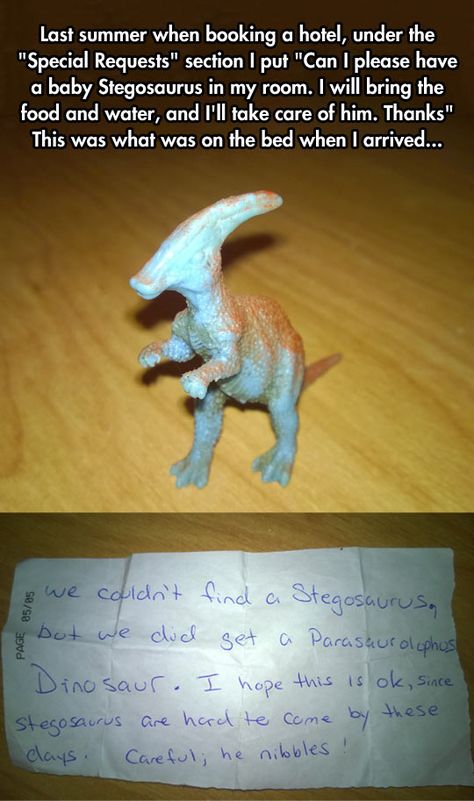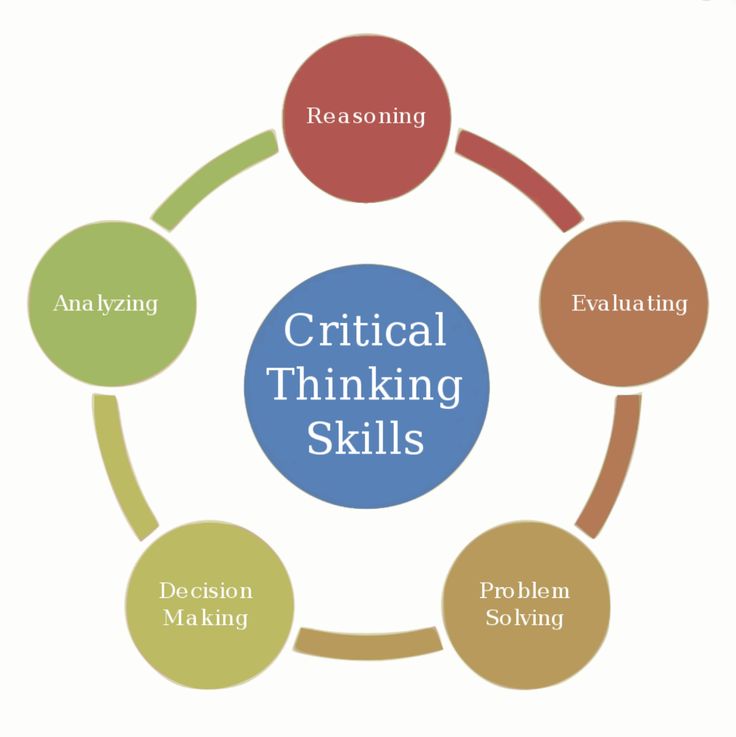Before bed activities
11 Relaxing Activities Before Bed
Modern life can be hectic and full of stress. Relaxing at the end of each day and getting a full night’s sleep is essential in helping you cope with life’s day to day grind. However, the issues that you need sleep to help you to unwind from are often ones that also keep you awake. Luckily there are a few things you can do that will help you to relax and make sleep happen more easily. So, if you’re looking for some relaxing activities before bed that will help you get to sleep then these ten suggestions should come in handy.
It’s important to note that creating the right conditions for sleep at night aren’t as simple as doing one of the activities on this list. There are also things you can avoid as well. Try to avoid caffeine, blue lights from devices, and watching or listening to anything stimulating.
Unwinding before bed isn’t just about the things you can do, but also about the things you should avoid. Once you are avoiding the right things, then look to implement some activities to relax you before bed.
11 relaxing activities before bed
Here’s 11 relaxing activities you can add to your night time routine before bed. For best results, I recommend trying 1 of these activities everyday and incorporating the ones you found to be the most effective into your evening routine.
1. Listen to ASMR
ASMR, or Autonomous Sensory Meridian Response, is a trending and new genre of videos and audio that includes sounds such as whispers and scratching to help stimulate a tingling sensation among people and relax them.
ASMR audio recordings are great for helping you to relax. A good ASMR artist with a soothing tone can really make you feel calm and help ground you emotionally. You can find plenty of ASMR videos on Youtube and you can usually buy audio versions linked from the creator’s webpage.
Free meditation appDeclutter The Mind is an app that will teach you how to meditate, help you form the habit of a regular practice, and expand your mind to the teachings of mindfulness.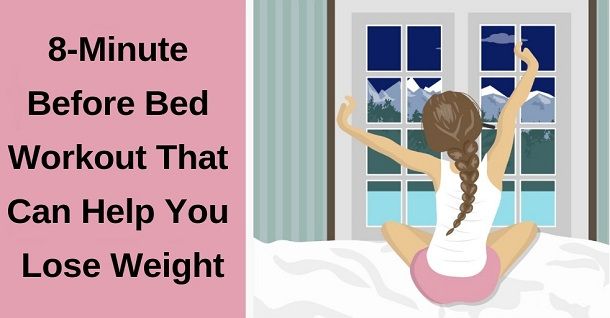
Download App
It isn’t for everyone, but the recent surge in the amount of ASMR videos and audio is a sign of how effective it is as a relaxing activity before bed. Many of which use it before bed as an activity to prepare them for sleep.
2. Practice meditation
Take some time to practice meditation before going to sleep. Meditation is a great method for resolving negative thoughts and anxieties and it will help put you in a better mind-state for sleep.
If you’ve never tried meditation before, start with a simple breathing and visualization exercise. Generally, the idea is to use meditation to become aware of your thoughts in a non-judgemental way. It’s our judgement of these thoughts at night that leads us to get lost in them and it can keep us up. All the issues, anxieties, and problems from the day or the days ahead don’t need to be analyzed when our head hits the pillow. Instead, meditation offers a way to clear the mind of these thoughts.
To start, you can try some of our guided meditations for sleep or even download our app which contains various guided meditations to help you relax and fall asleep.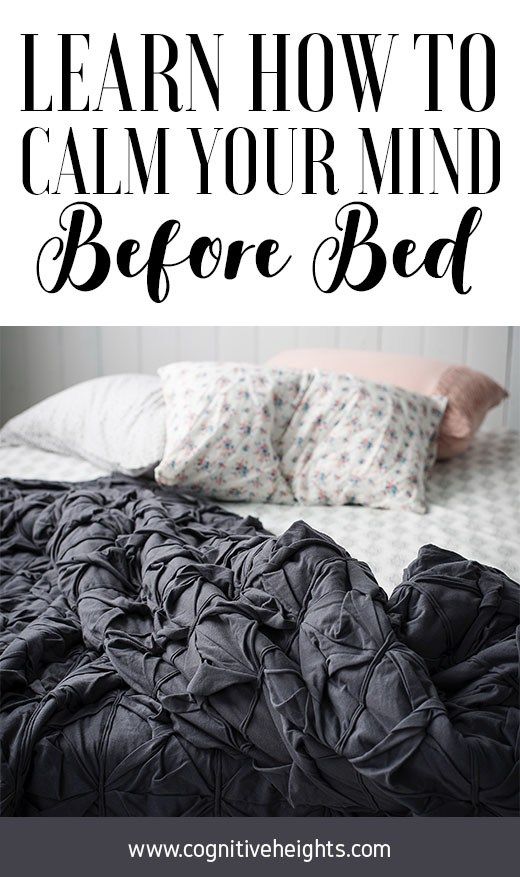
3. Listen to sleep hypnosis audio recordings
Sleep hypnosis is a bit like ASMR combined with meditation. It uses audio effects, noises, and music combined with a soothing guided instruction to help you relax at night.
Depending on how “suggestible” a person is, sleep hypnosis works better on some people than others. It’s not a universal solution and there’s very little scientific evidence to support how it actually works.
Still, there is a lot of anecdotal evidence among people who use it nightly as an activity to relax before bed to help them fall asleep.
4. Read a book
Reading a good book at the end of your day is a great way to slow yourself down and get ready for sleep. It also helps distract you from any anxiety you may have left over from your day and puts you in a more passive and receptive mood ready to drift off to dreamland.
You can find plenty of interesting books to read at your local library and if you have a tablet or e-book reader you can also find lots of literature online. Light reading is suggested over more intense technical reading. The last thing you want to do is over stimulate yourself. Fiction is probably the best genre for this. If you need a suggestion, take a look at the best meditation books.
Light reading is suggested over more intense technical reading. The last thing you want to do is over stimulate yourself. Fiction is probably the best genre for this. If you need a suggestion, take a look at the best meditation books.
It’s also important to note that you should try to avoid reading off of backlit devices such as a laptop or tablet as the blue light they emit can stimulate you and keep you awake.
5. Listen to some soothing music
Music is a great mood enhancer, so if you want to get yourself into a more relaxed mood some smooth soothing tunes are just the thing to put you there.
Some recommended genres of music are jazz, lofi hip hop beats, chillstep, ambient, classical, and even soft rock. Spotify even has curated playlists just for relaxing at night or falling asleep.
The great thing about relaxing and soothing music is that you can use it in combination with other relaxing activities before bed on this list.
6. Practice muscle relaxation and deep breathing techniques
One of the biggest issues many people have in getting to sleep is where their muscles tense up due to anxiety.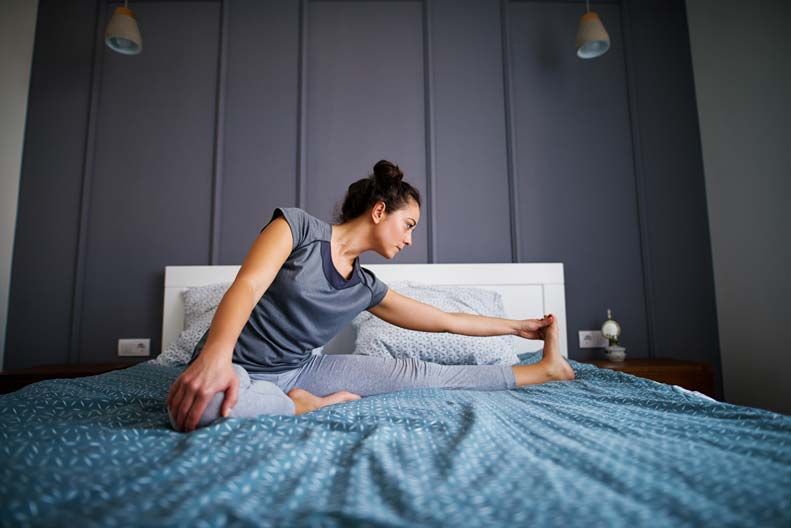 This often happens as a response to being worried about getting to sleep, so you end up in a self-fulfilling feedback loop.
This often happens as a response to being worried about getting to sleep, so you end up in a self-fulfilling feedback loop.
The good news is that pretty much anything you have voluntary control over in your body responds to regular practice. Take some time before you go to sleep to try to relax all your muscles in one area of your body at a time.
Start at your feet and end at your head. Practice slow deep breathing as you do this. Over time you will learn to relax your muscles at will which will make it much easier for you to get to sleep when you need to.
Try to gently massage your muscles on your legs, feet, and upper back. Rub these muscles with your thumbs in a circular motion.
Even simple stretches and yoga poses can help put your muscles in a more relaxed state. Poses such as a wide-legged child’s pose, or resting on your back with your legs up against the wall can help relax you and your muscles before bed.
7. Write a journal entry about your day
Take a few minutes before you go to bed to write down the most important things that happened in your day.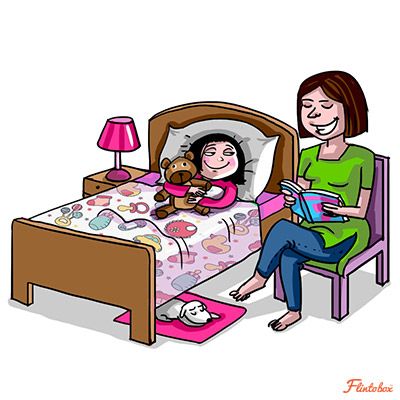 In addition to helping you to clarify your feelings about the events of your day this will also provide a great reference to help give you an overview of how your life is progressing.
In addition to helping you to clarify your feelings about the events of your day this will also provide a great reference to help give you an overview of how your life is progressing.
Give yourself the opportunity to vent every night before going to bed. If your thoughts and feelings of the day always surface before you go to sleep, use your journal and pen as an outlet. If you need writing prompts, try a mindfulness journal.
Write about your thoughts and what happened. Try to give yourself some closure every night so that the mind isn’t keeping you up.
8. Write a to-do list for tomorrow
Going to bed worried about tomorrow’s problems won’t help you get to sleep so take the time to write down a to-do list of things you can do to make those problems go away.
Knowing that you’ve at least made a small effort towards bringing those issues under control can help a lot in short-circuiting any anxiety you might have about those problems.
It’s also important to understand what you can control and what you can’t control. Especially in the moment. If you’re up all night worried about the thing you need to do tomorrow, does thinking about it in bed actually solve the problem?
Especially in the moment. If you’re up all night worried about the thing you need to do tomorrow, does thinking about it in bed actually solve the problem?
Instead, take time to create a plan of attack for the next day’s problems to help ease the mind of anxieties before bed.
9. Take a warm soothing bath
There’s nothing like a soak in a warm bath to relax your muscles and prepare you for sleep.
Take some time to wash your troubles away before going to bed. You might not be able to take a long bath every day of the week, but taking some time to relax in the tub every now and then is great for de-stressing and relieving any anxiety you may have built up throughout your day.
Even going the extra mile is worth it. Light a few candles. Play some relaxing music. Use a bath bomb or body wash that has a lavender scent.
It might also help to set a timer. If your anxiety is making you feel like you’re rushing the bath or all you can think about is getting out of the tub, set a minimum time. Try at least 15 minutes in the tub and close your eyes and breathe.
Try at least 15 minutes in the tub and close your eyes and breathe.
10. Take a moment to think about all the positive things in your life
Everyone has some rough moments in their day and the last thing you want to do is take negative thoughts about those moments to bed with you.
Use some of your time before going to sleep to remind yourself of all the positive things that have happened to you throughout your day, and the productive things that you achieved. Tell yourself that almost all problems are fixable, and that any negatives are likely temporary.
You’ve been through rough patches in the past and you’ve gotten through them, so remind yourself of that too.
Practice some gratitude before bed as well. Think about the things and people you’re grateful for. Remind yourself of all the little and big things in your life that you truly appreciate. Creating the proper conditions before bed isn’t always physical. It’s also about creating the right conditions in your mind.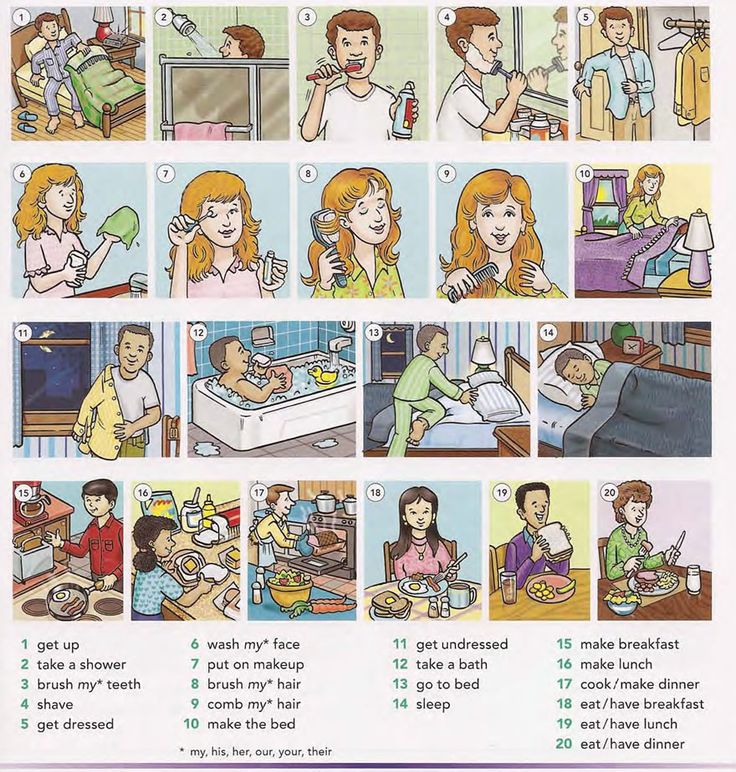 If you need some ideas, check out our long gratitude list for things to be grateful for.
If you need some ideas, check out our long gratitude list for things to be grateful for.
11. Play a relaxing game
Video games can be pretty stimulating but today, there are hundreds of video games that are comfy and relaxing. Give yourself a chance to unwind and decompress from the stressors of the day with a anxiety relief game. It doesn’t need to be a video game either. There are plenty of board games and card games you can play that can be very relaxing.
Be careful to not play video games too close before bed time. The blue light from screens can be stimulating and keep you up at night. Some relaxing games can still be stimulating, as well. Try to mix this activity with another relaxing activity before bed.
Good night
Engaging in some relaxing activities before bed can be a great help in getting you to sleep. It’s worth taking the time at the end of your day to put yourself into a more relaxed mood so that sleep happens more naturally. Getting a good night’s sleep is one of the best ways to ensure that you are ready for each new day, so try these suggestions out and see which ones work for you.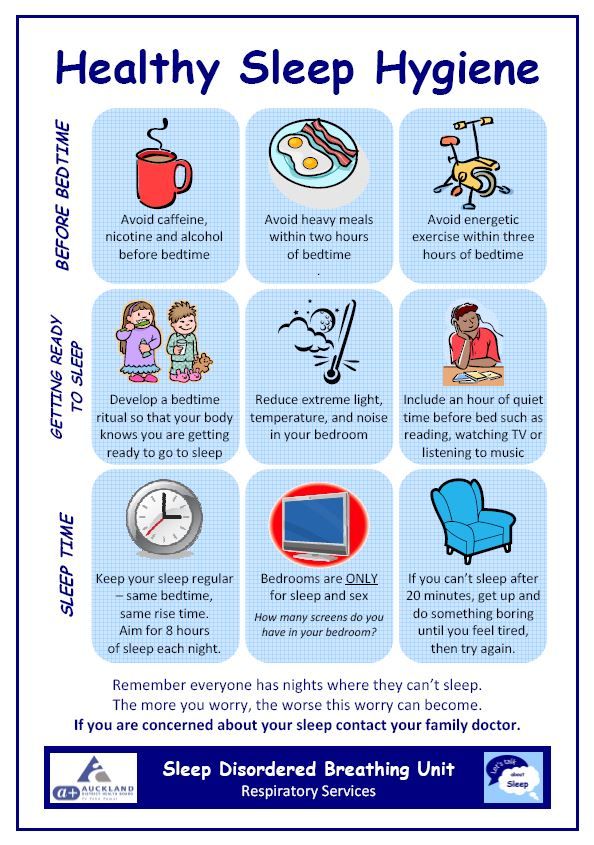
If you have any suggestions or have activities you do that help you sleep better at night, feel free to share them below in a comment.
Declutter The Mind - Free Guided Meditation App for iOS and Android
Declutter The Mind is a free guided meditation app that will help you live more mindfully and understand your mind better.
Declutter The Mind is a free guided meditation app that will help you live more mindfully and understand your mind better.
Start living an examined life
We built Declutter The Mind from the ground up and with our own background, teachings, and experience with mindfulness meditation to help unlock the benefits of mindfulness to everyone.
Learn to meditate
Access free courses that will teach you how to meditate, show you how to practice mindfulness, and provide you a tool that you can take with you into your daily life to improve your happiness.
Our featured course is a 30 day mindfulness course that’s designed for beginners and meditation novices, that will help you practice mindfulness, learn how to meditate, form the habit, and deepen your practice.
Daily practice
Whether you’re a complete beginner or very experienced, there’s a daily practice and session waiting for you inside the app. Everything from guided mindfulness meditation to practical visualizations.
To keep your practice fresh and unique everyday, Declutter The Mind offers a Daily Meditation. With the Daily Meditation, you’ll receive a new and original guided meditation for just today. The next day, you’ll find something else. The idea is to introduce you to different types of practices and concepts, while keeping things fresh.
Free growing library
Declutter The Mind contains a growing library of free guided meditation practices for nearly every goal. Whether you’re interested in mindfulness, loving-kindness, or you need something for anxiety, it’s in the app.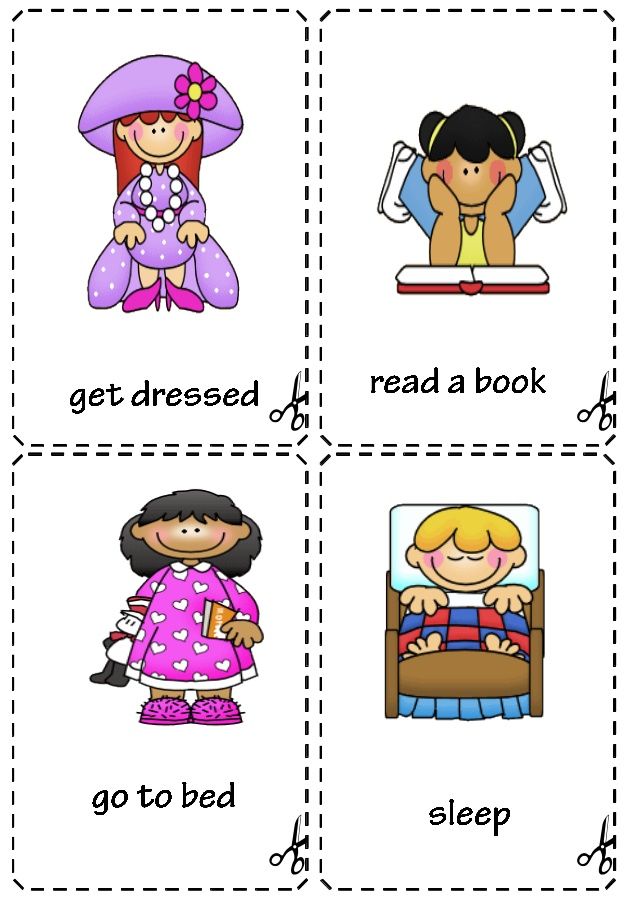
Within each category, we offer various guided practices, in different lengths, from 5 minutes all the way to 30 minutes. Each practice can be completed more than once and you’re free to Favorite the ones that help you the most.
What people are saying
Here’s some reviews from the App Store and Play Store.
“I love this app!”
“I have stuck with it for 5 days now and look forward to my meditation everyday.”
“This app fits my lifestyle very well and I enjoy a more mindful existence now.”
“This app makes such a big difference in my day.”
“My life has changed a lot since I used this app to meditate.”
Receive the benefits without the woo-woo
Meditation doesn’t need to be sold as mystical, spiritual, or supernatural for it to work for you. The science shows meditation helps with focus, anxiety, sleep, and happiness. Let Declutter The Mind help you unlock these benefits.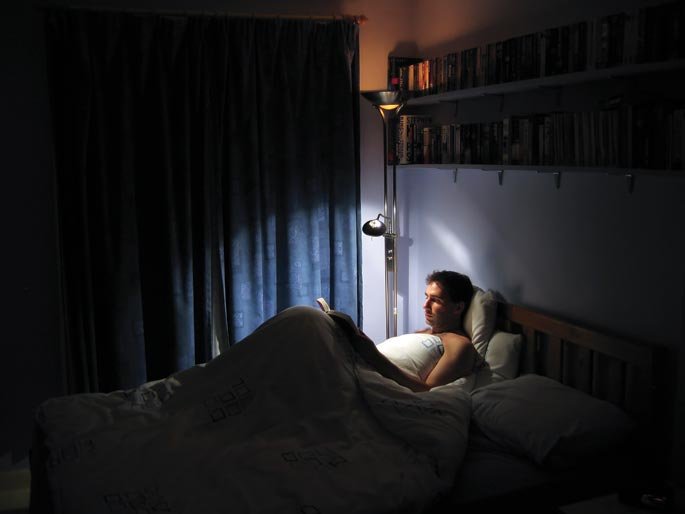
Understand the mind better
Our goal is to bring an approachable, practical, and realistic experience and teachings to anyone who’s suffering or wants to better understand their mind.
Get out of autopilot with mindfulness
We want to create a world where everyone takes their mental health as serious as their physical health. Declutter The Mind serves to help bridge that gap by demystifying and removing the myth and hyperbole around meditation.
Declutter your mind and live mindfully
Download and use the app for free. No trials.
Sitemap
|
|
why it is harmful to eat before bedtime, what not to eat before bedtime
Insomnia is a state of overexcitation of the central nervous system caused by factors of various etiologies.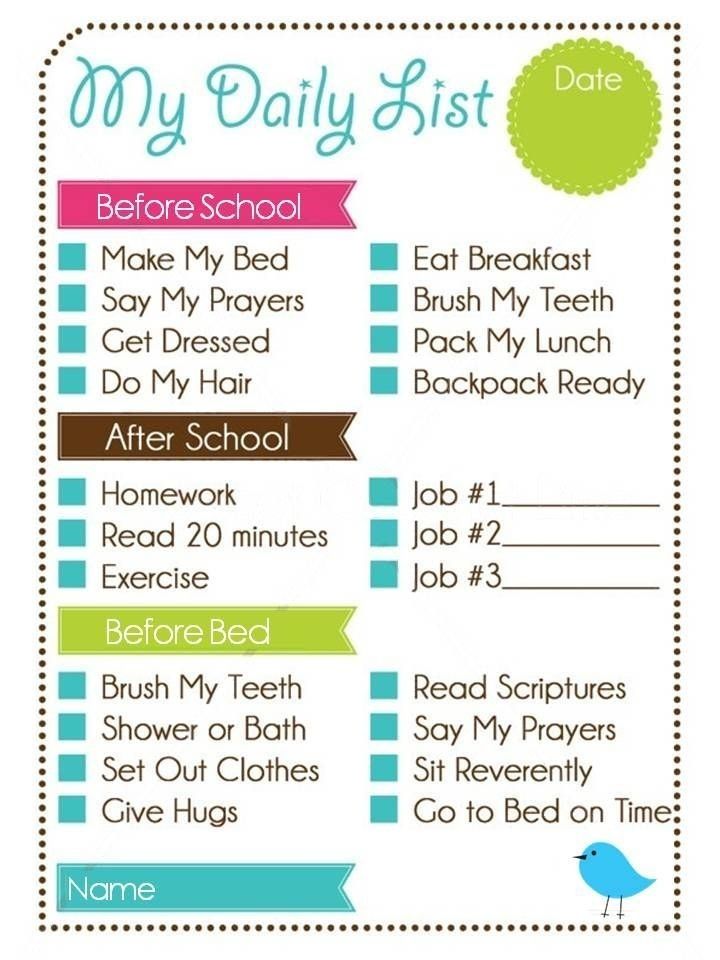 In medical practice, this condition is also called insomnia. It cannot be fully attributed only to pathological diseases. Sleep disorders affect perfectly healthy people. The term insomnia can be equated with such conditions as: a long period of falling asleep, early awakening, superficial sleep, and others.
In medical practice, this condition is also called insomnia. It cannot be fully attributed only to pathological diseases. Sleep disorders affect perfectly healthy people. The term insomnia can be equated with such conditions as: a long period of falling asleep, early awakening, superficial sleep, and others.
As you know, good sleep is an excellent tool in the fight against fatigue, bad mood and laziness. If you manage to rest during the night, the next day you can feel reborn. Interestingly, the female body needs at least 7 hours for proper rest and recovery, while the male body needs a little less. Lack of sleep leads to overeating, problems with growth in adolescents, excess weight, a general decrease in immunity, etc.
Good sleep depends on the work of night hormones. The main sleep hormone is melatonin, its important functions are: regulation of the circadian rhythm, as well as antioxidant activity, which is necessary for maintaining health and youth. To produce the required amount of melatonin, it is important to observe certain conditions: darkness, sleep time (optimally from 22–23 pm to 5–6 am) and the presence of the required amount of its precursors, because melatonin is formed from serotonin, which, in turn, from tryptophan. It is also important to understand that 95% of the total endogenous hormone of joy is formed in the intestines. That is, the food that a person eats before rest has a great influence on sleep.
It is also important to understand that 95% of the total endogenous hormone of joy is formed in the intestines. That is, the food that a person eats before rest has a great influence on sleep.
This article provides a list of recommendations and foods that will help you figure out what to eat before bed and what to avoid.
The best meal before bed
Foods rich in the amino acid tryptophan
If the last meal includes foods rich in this amino acid, the quality of sleep will improve. Tryptophan is rich in vegetable proteins, especially legumes, in addition, these are: pumpkin seeds, walnuts, soybeans. They can be combined with other foods, preferably with carbohydrates, which will help to digest faster: with pasta, whole grain bread, crackers, eggs, and dairy products. The record holder for the content of tryptophan in meat is venison. You will begin to yawn immediately after eating! In second place is the white meat of chicken or turkey.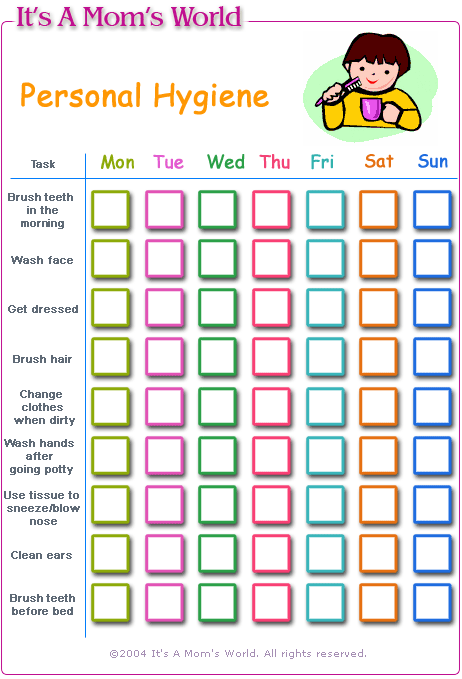 Besides the fact that such a dinner will turn out to be hearty and low-calorie, the tryptophan contained in these types of meat will have a calming effect on the nervous system.
Besides the fact that such a dinner will turn out to be hearty and low-calorie, the tryptophan contained in these types of meat will have a calming effect on the nervous system.
Products containing melatonin
Answering the question whether it is possible to eat before bed, doctors call products containing the hormone melatonin. One of the few sources of it is cherry. So, scientists conducted a study during which they found out that a glass of cherry juice drunk before bedtime helps fight insomnia, even for older people.
In addition, cherries, grapes and green leafy vegetables, especially different types of cabbage, differ in the content of natural melatonin. It is also abundant in corn, rice, wheat, barley, oats, and also in wine.
Magnesium-rich foods
This trace element is often prescribed for those who have trouble falling asleep and often experience poor sleep quality. Magnesium is a microelement that relaxes the muscles of the body, relieves increased anxiety and sets you up for deep sleep.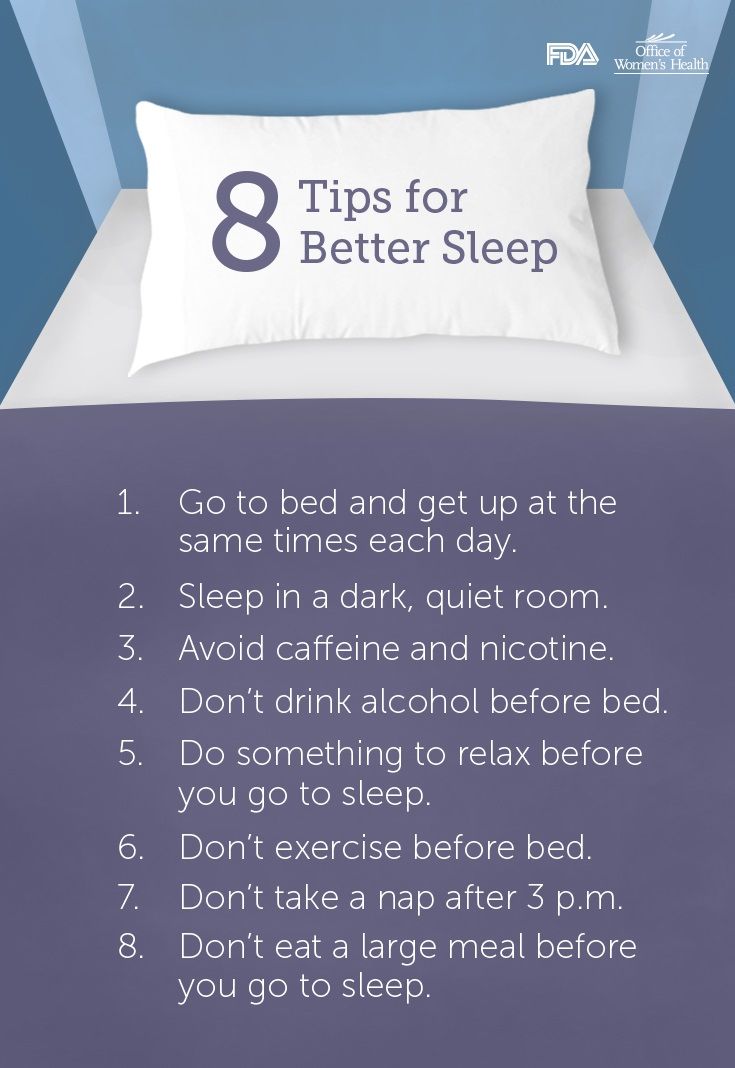 It is rich in nuts, especially almonds, as well as buckwheat and seaweed.
It is rich in nuts, especially almonds, as well as buckwheat and seaweed.
Foods with a high glycemic index
According to research published in the American Journal of Clinical Nutrition, rice is notable for its high glycemic index, especially its jasmine variety, which is more effective than others in helping you fall asleep quickly and soundly.
In addition, salted pretzels and crackers have a high glycemic index - that is, they cause a quick burst of energy, which is replaced by drowsiness just as quickly.
Herbal tea
Chamomile tea is the first remedy recommended for insomnia. One cup is able to raise the level of glycine, which gently calms the nerves and relieves muscle tension.
Green tea in the evening will also help you fall asleep much faster, because it is rich in theanine, which increases the synthesis of dopamine and serotonin. These neurotransmitters relieve anxiety, soothe and relax.
Seafood
Fish, especially tuna and salmon, are rich in vitamin B6, which is actively involved in the production of melatonin and serotonin. By the way, among other products, where you can get this vitamin - garlic (exceptionally fresh) and pistachios.
Shrimps and lobsters are another source of tryptophan. A good reason to please yourself with sea delicacies at night looking.
Honey
The natural sugar found in honey increases insulin levels and allows tryptophan to interact with the brain more quickly. A teaspoon of honey with chamomile tea before bed will enhance the calming effect of the drink.
Dairy products
Dairy products promote healthy sleep, because the calcium they contain helps to absorb the amino acid tryptophan and produce melatonin. In addition, calcium also helps to normalize muscle activity and relieves night cramps.
It is known that a glass of warm milk at night, or better with cookies, guarantees sound sleep throughout the night. In fact, this combination is considered a harmful sedative, because it has a powerful relaxing effect. This is due to the fact that in the process of their processing, substances similar to drugs are released into the blood - casomorphine and glucomorphine. They really have a calming effect on the body, but quickly cause food addiction.
In fact, this combination is considered a harmful sedative, because it has a powerful relaxing effect. This is due to the fact that in the process of their processing, substances similar to drugs are released into the blood - casomorphine and glucomorphine. They really have a calming effect on the body, but quickly cause food addiction.
What and why should not be eaten before bed?
There are products that negatively affect the quality of sleep.
- Caffeine , found in coffee, chocolate, tea and energy drinks, interferes with healthy sleep. Therefore, you do not need to consume such products before bedtime. Moreover, it is desirable to reduce the daily rate of caffeine to 200-300 mg.
- Fatty foods are digested for a long time and while this is happening, the body is working, not resting. Therefore, ice cream, chips and other sources of fat are not recommended to eat at night
- Products containing simple sugars : pastries, sweets, jams, industrial sauces, dairy products with additives, very sweet fruits.
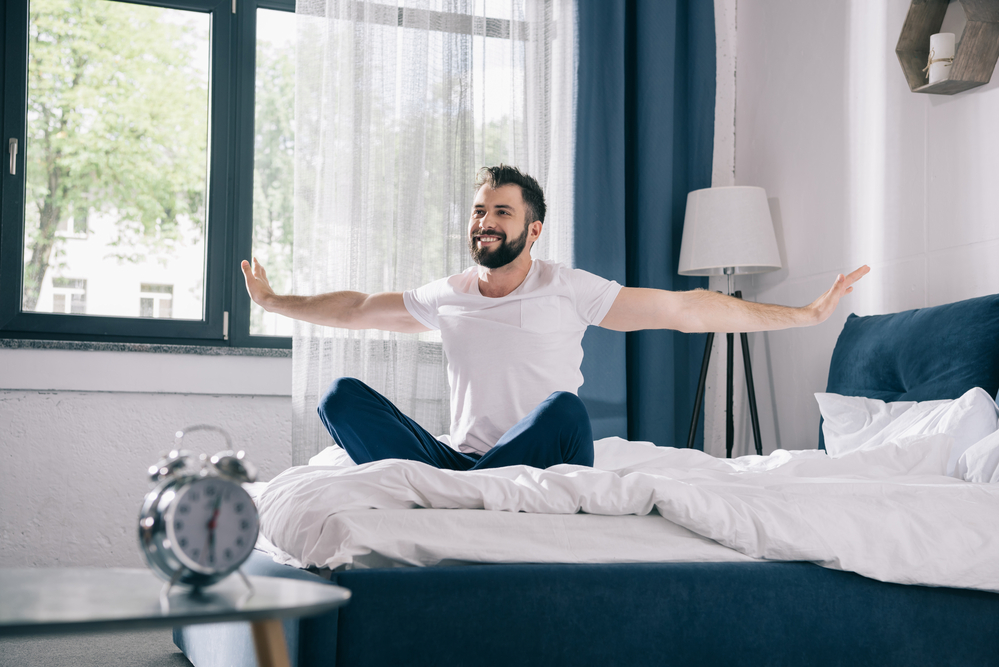 Their use after 17:00 stimulates the production of hormones such as adrenaline and norepinephrine, which leads to aggressiveness and irritability.
Their use after 17:00 stimulates the production of hormones such as adrenaline and norepinephrine, which leads to aggressiveness and irritability. - Red meat . Even if a brutal appetite broke out before going to bed, you should not eat it. It contains a lot of fats and proteins, which means that the body simply does not have enough time to digest it, and this will negatively affect the night's rest.
- Spicy food should not be on the list of snacks before bed, because this is a direct path to insomnia. The fact is that acute can cause discomfort in the stomach, heartburn, bloating, which certainly will not contribute to sound sleep.
- Sweet cereal porridge is better not to eat in the evening because the body will not have time to burn all the calories. This type of food is a great breakfast option that gives the body a lot of energy.
- Alcohol in small amounts can cause drowsiness, but if you regularly consume large doses of such drinks, it can cause problems with sleep.
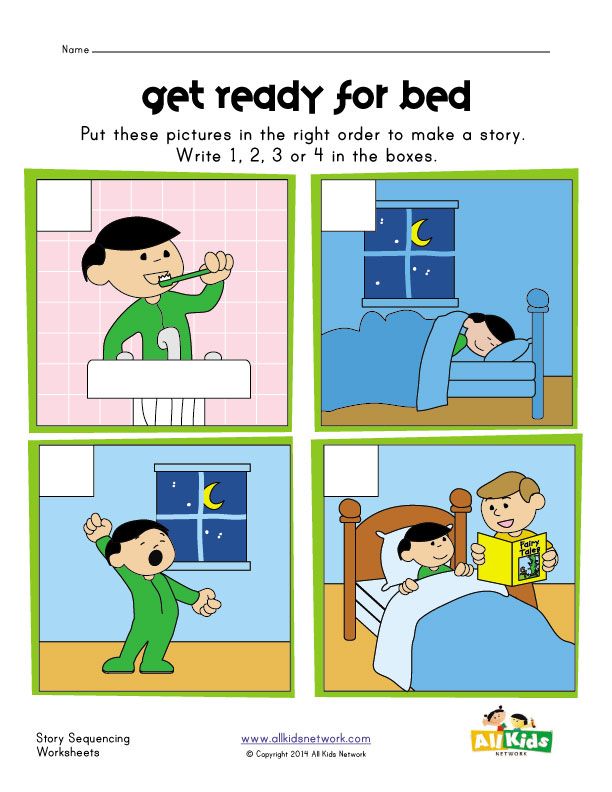
- Diuretic products , simply diuretics. These include watermelons, grapefruits, cranberries, sea buckthorn, and so on. Their effect on the body is obvious - all these products stimulate diuresis. In the afternoon, it is better to refuse them, otherwise frequent visits to the toilet in the middle of the night will be provided.
What can not be done before going to bed, but what can be done?
Meal planning isn't just about what you eat in the evening. The foods that are included in your diet throughout the day also matter. Many of them significantly affect how quickly you fall asleep and how long you sleep.
In general, large meals should be avoided before going to bed, so it is advisable to reduce the usual portion several times at a late dinner.
Snack options that won't ruin your sleep:
- Berries with natural yogurt. Carbohydrates in berries increase the production of serotonin, and yogurt - tryptophan.

- Kiwifruit is a source of antioxidants that may help improve sleep onset, duration and efficiency.
- Spinach Salad with Quinoa, Avocado and Pumpkin Seeds - these ingredients are sources of magnesium, a mineral essential for normal sleep.
- Milk with turmeric. This spice soothes the stomach, has antioxidant and anti-inflammatory properties, which helps you sleep better.
- Peanut Butter Bananas - Not only is this combination rich in magnesium, it also helps reduce blood sugar spikes and may be especially beneficial for people with diabetes.
- Cherry walnut pie . This dish is loaded with melatonin, a hormone that plays an important role in the body's sleep-wake cycle.
One of the popular questions:
Can I eat apples at night?
Eating sweet fruits such as apples is unhealthy because the sensitivity of fat/muscle and liver cells to the hormone insulin decreases in the evening.

